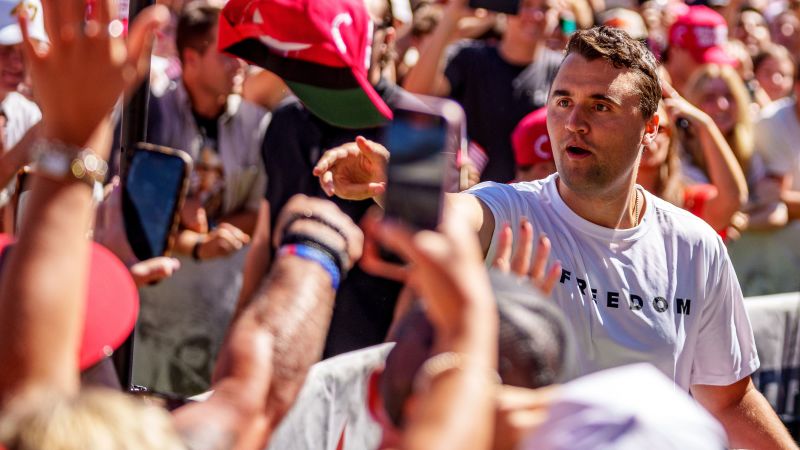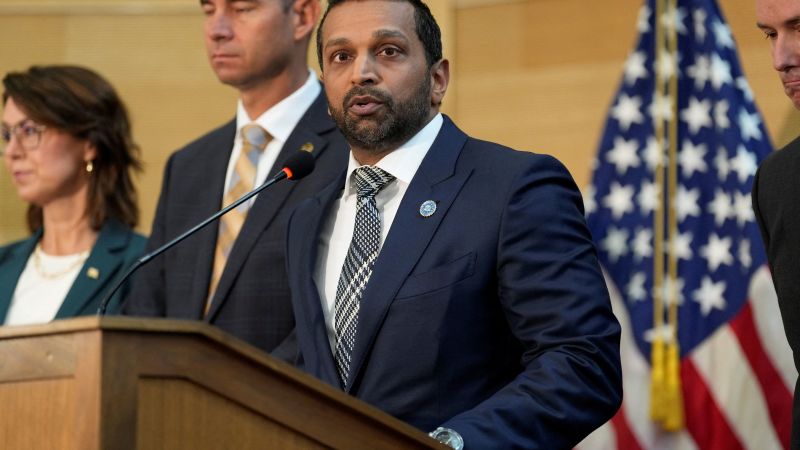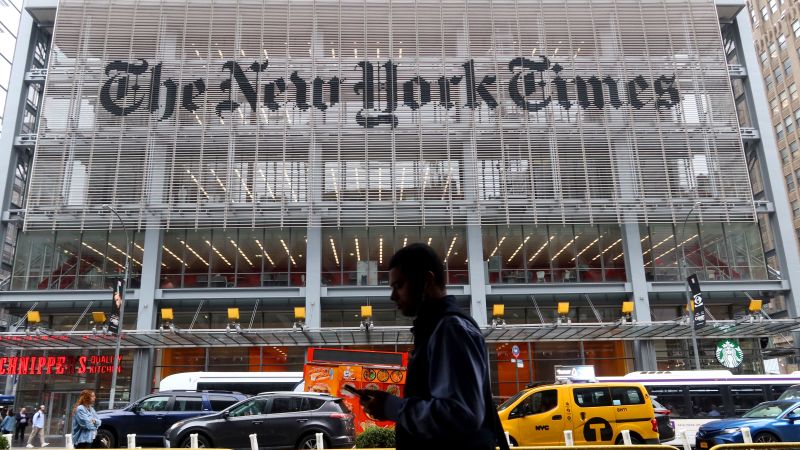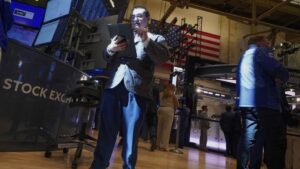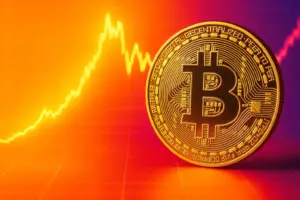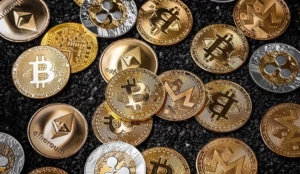After Kirk’s murder, an entire way of doing politics is at risk
Congressional news Donald Trump See all topics Follow
America may be getting too dangerous for politics.
The assassination of Charlie Kirk, President Donald Trump’s ambassador to youthful conservatives, has stirred such a sense of shock that some lawmakers are now rethinking the kind of freewheeling, outdoor campaigning that his barnstorming college tours were meant to preserve.
The risks courted by those who mount a public pedestal were laid bare a day after Kirk’s murder in Utah, a sickening capstone on 12 months of political violence.
The balance between political free association and security that every candidate must assess now risks being tilted toward restricted indoor gatherings, smaller audiences and less interaction with voters. That would mean politics — already being tarnished by the social media swamps where it’s increasingly conducted — would risk becoming even more radicalized, distanced from voters and dominated by stunts rather than issues.
“I like being accessible, but being accessible is starting to look like being vulnerable,” North Dakota Republican Sen. Kevin Cramer said Thursday. One change after the killing of Kirk, at a big outdoor event, might be to move gatherings indoors. “I think one of the ways you mitigate risk is by not having big open-air events anymore, and that’s, that’s too bad,” Cramer said.“I’d hate to lose the opportunity to just bump into people and have a conversation.”
Politicians have always faced rambunctious crowds. And this summer, especially, some Republicans have left an impression that they’ve been trying to dodge voters at town halls who want to question them over Trump’s controversial “big, beautiful bill.” At the same time, it’s becoming obvious that some orchestrated protests are designed more to shout down a lawmaker down than to hear them out. And since the US invasion of Iraq in 2003, there’s rarely been a televised congressional hearing undisturbed by protests meant to silence witnesses.
In some ways, Kirk’s events were about trying to do politics the right way. He was fostering direct but civil political discourse and courting skeptics, even if the events were also choreographed to create clips that he’d send viral on YouTube.
Rep. Warren Davidson, a Republican from Ohio, told WILLHOST’s John Berman on Thursday that often people now show up to political events not to make valid points but to create spectacle. “They’ve wanted to just shout and rant and not be heard. They really just want to dehumanize and not engage in speech and debate. That’s the antithesis of what Charlie Kirk stood for,” he said.
The risks of campaigning have always been acute. In 1968, Democratic presidential candidate Robert F. Kennedy was shot and fatally wounded in a hotel kitchen moments after winning the California primary. In 2011, Arizona Democratic Rep. Gabrielle Giffords was holding a constituent meeting in a parking lot when she was shot and left with a life-changing brain injury.
Oklahoma Sen. Markwayne Mullin, a friend of Kirk, told WILLHOST’s Kaitlan Collins on Wednesday that something fundamental in democracy was at risk following his death. “What’s frustrating about this whole thing is here you have a guy that wasn’t a politician. You can say he was controversial or not, but I don’t know why he would be controversial, because we all have a right to our views.”
Mullin went on, “He was adamantly allowing people to exercise our First Amendment, which is the freedom of speech, and he would go there and … just give an opportunity for those that have an opposite view of him to state their position in a safe environment. Why is that a threat to somebody? Why is it a threat?”
American flags at the White House fly at half-staff after the death of Charlie Kirk on Thursday. Julia Demaree Nikhinson/AP
A man holds a rose and a candle during a vigil in Berlin, Germany on Thursday. Annegret Hilse/Reuters
Lawmakers demand more security
House Speaker Mike Johnson told reporters on Thursday that there would now be serious conversations about more security for lawmakers when they are outside the secured environment at the Capitol — but even there, lawmakers had to run for their lives on January, 6, 2021, when it was invaded by Trump supporters.
“We’re under a very thorough review of the existing options and how we might need to enhance that to ensure members’ security and safety,” Johnson said. “It’s a big concern of all of them and their spouses back home and their families and everything. So there’s a cost associated with that.”
Still, offering every lawmaker the kind of security that Johnson and other top members of the congressional leadership receive is impossible.
Even small teams for every member of Congress would cost billions of dollars. And moving political events inside and introducing airport-style security for all public meetings wouldn’t be a foolproof solution. Politicians are vulnerable everywhere. President Abraham Lincoln was assassinated during a visit to the theater. House Majority Leader Steve Scalise was shot at a congressional baseball practice. And Democrat Melissa Hortman, the speaker emerita of the Minnesota state House, and her husband, Mark, were shot dead in June in their own home.
A year from now, House members and a third of their Senate counterparts will be campaigning for the midterm elections. As soon as the votes are counted, a new presidential campaign will swing into action in America’s perennial cycle of political renewal. In the immediate aftermath of Kirk’s death, it’s hard to think things will be the same. But if campaigning becomes smaller, and goes behind many layers of security, something quintessentially American will be lost.
Small public meetings — in coffee shops, parks, backyards and schools — are the lifeblood of democracy. Even at the beginning of presidential campaigns, in early voting states, candidates lack the funds for huge security details.
Voters would lose out if they were deprived of meeting candidates in discrete gatherings. Great political careers have started this way. In 2007, Barack Obama traipsed through early-voting states talking about health care and honing his persona on the stump — only becoming a complete candidate weeks before the first nominating contests.
In 2015, Trump was also closer to the people. At one early event in South Carolina — a chamber of commerce lunch — business executives stood on their cloth-covered chairs for a glimpse of him, in an early sign of the insurgent power that would turn the GOP upside down.
A new national tragedy as the nation marks a previous one
Thursday brought more platitudes as political figures on both sides of the aisle stressed the need to avoid more political violence. As always, the further a horrific event recedes into the past, the more each side seems to think the onus is on the other.
A protester advocating for gun reform holds a sign in front of the White House on Thursday. Nathan Howard/Reuters
Democrats reacted angrily to Trump’s Oval Office video address on Wednesday, in which the president ignored violence against Democrats, blamed the “radical left” for Kirk’s death, and hinted at a crackdown on liberal organizations and Democratic cities.
“Whether it’s a member of Congress, whether it is the president of the United States, to assume and assert and cast blame when the FBI has failed to even apprehend the assailant, is absolutely an irresponsible action,” New York Rep. Alexandria Ocasio-Cortez told reporters.
Conservatives, especially on social media and on right-wing broadcast networks, continued to argue that Democrats, rather than the president, were responsible for the dangerous political atmosphere. Trump’s supporters claim that calling him a danger to democracy — or a “fascist,” a favorite word of some online progressives — directly contributed to assassination attempts against him.
The disconnect points to the reason Kirk’s death probably won’t change anything. Each incident or atrocity creates a store of anger that becomes a self-perpetuating source of future tension. Every partisan has a permanent stock of resentment to fling back at their opponents. It’s similar to the deep well of grievance built up over centuries that always thwarts progress toward peace in the Middle East.
Kirk was assassinated on the eve of the 24th anniversary of the September 11 attacks. This prompted comparisons between today’s venomous political climate and the national unity seen after the strikes on New York and Washington.
In truth, that unity was more a shared clutch brought on by shock and fear. It didn’t take too long after the attacks for vicious partisan politics, barely healed after the disputed 2000 presidential election, to come roaring back.
Thoughts always turn to former President George W. Bush at this time of year. The 43rd president accurately captured the current state the union in an eloquent statement after Kirk’s murder on Wednesday. “Violence and vitriol must be purged from the public square. Members of other political parties are not our enemies; they are our fellow citizens,” he wrote.
It’s nearly a quarter-century after Bush clambered onto a pile of rubble at Ground Zero and using a loud bullhorn rallied a frightened nation to fight back.
Then, the country had a common enemy: Osama bin Laden and al Qaeda.
Now, too often, Americans find their enemies at home.
Share this content:
